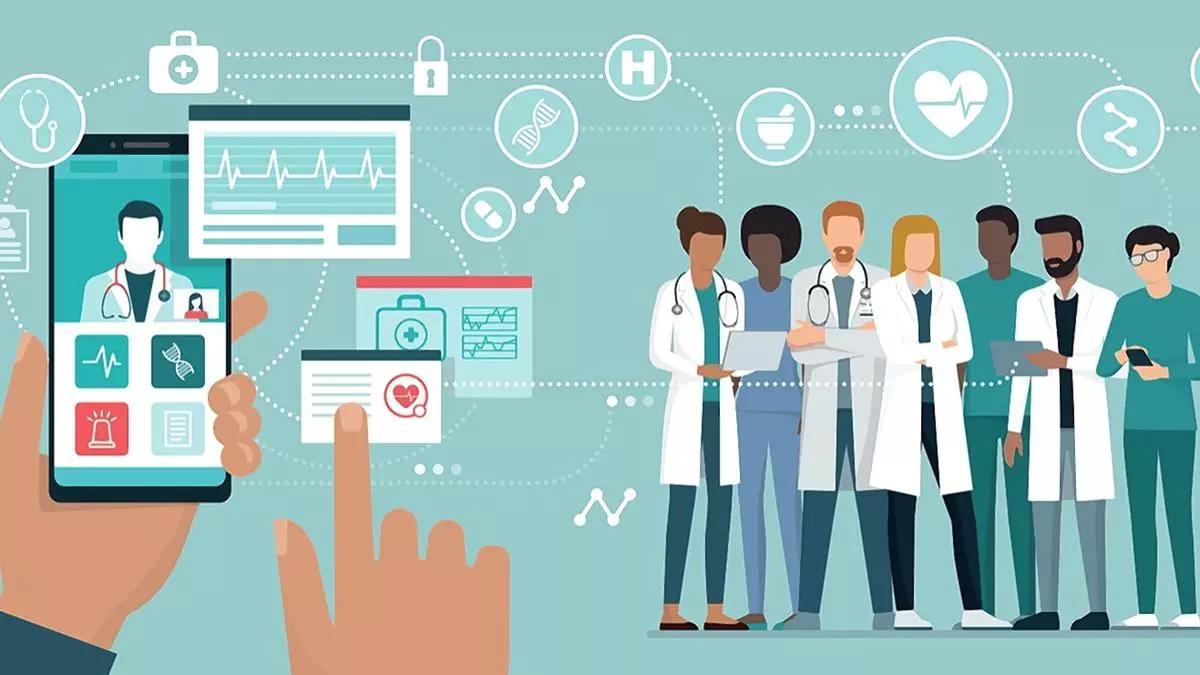
Digital pharma platform
It is bizarre that in this digital age we expect our senior citizens to physically go to government medical centres to get their medicines.
There are numerous apps available to order medicines online.
However, the retired population of India which accounts for almost 25 per cent of the total population has no access to such apps.
They have to go to physical dispensaries, do all the paper work and stand in queues.
How can a priority area like this be left untapped by the technology? A ‘Unified Digital Pharmacy Platform’ (UDPP) could serve as a digital healthcare solution for senior citizens, eliminating the need for physical visits to dispensaries and automating the process of obtaining medication and clearing bills.
Platform’s features Account Creation: In just a click using senior citizens Aadhaar and a real time photo could create an account on the app.
The Aadhaar information can then be used to generate the patient’s history like organisation affiliation, the eligible medical allowance etc.
Online consultation: Senior citizens can consult with doctors through video calls.
Digital prescriptions: Doctors can prescribe medications electronically, which can then be sent directly to the digital pharmacy.
Medication delivery: The digital pharmacy can deliver medications directly to the senior citizen’s home, ensuring convenience and safety.
QR code scanning: The senior citizen can scan a QR code on the medication package to verify authenticity and track usage.
Digital payments: Bills can be automatically generated and paid through digital wallets or online banking, eliminating the need for cash transactions.
Medication reminders: The platform can provide reminders for medication intake, ensuring adherence to prescribed treatment plans.
By leveraging technology, a digital pharmacy platform can offer a more accessible and convenient healthcare experience for senior citizens, especially those with mobility limitations or living in remote areas.
The Union Ministry of Health and Family Welfare could be the regulating body for the Unified Digital Pharmacy Platform, as this Ministry is responsible for formulating and implementing national health policies.
Additionally, the Union Ministry of Electronics and Information Technology could also play a role in ensuring the technological infrastructure and cybersecurity aspects of the platform are adequately addressed.
Collaboration between these two ministries, along with inputs from healthcare professionals, industry experts, and patient organizations, would be essential for the success of a Unified Digital Pharmacy Platform.
In the AI-epoch it’s inconceivable that we’re still relying on outdated and physical processes.
This platform would require a combination of technologies to ensure its functionality, security and scalability.
To name a few — Cloud Computing can easily scale up to accommodate increasing user demand and data storage needs; use of blockchain technology can ensure data security and prevent tampering (patients can track the entire medication supply chain from manufacturer to them); Internet of Things (IoT), Monitor inventory levels and trigger automatic reordering; Cybersecurity, robust encryption measures to protect sensitive patient data and prevent unauthorized access to the platform.
Lastly, AI, Natural Language Processing (NLP) can facilitate medical document analysis; extract relevant information from medical records and other documents.
Image analysis, patient monitoring, anomaly detection are few more functionalities that can be incorporated using AI technology.
The government should come up with such an app soon.
Jain is Assistant Professor, Shyam Lal College, University of Delhi and Visiting Fellow, Pahle India Foundation; Gupta is a Delhi-based technocrat.
Related Articles
business
What Kinds of Loans Can a Businessman Avail?
November 14, 2024

Running a business means you’re always juggling finances – whether you’re just starting out, trying to grow, or need funds to handle everyday expenses.
Sometimes, no matter how well things are going, you need a little extra financial help to keep things moving smoothly or take your business to the next level.
read morebusiness
India’s spice exports set to hit $10 bn by 2030, eyes growth in new global markets
November 14, 2024

Indian spices export market is expected to grow to $10 billion by 2030 for which the spices industry is looking to expand its footprint in Africa, South America, and the East European bloc, where its presence is not yet significant, according to Ramkumar Menon, chairman of World Spice Organisation (WSO).
In an interaction with ET, Menon said “Besides exploring new markets, the spice industry is focusing on emerging sectors like health and wellness, nutraceuticals, and pharma, where spices are major ingredients owing to their health benefits.
read morebusiness
Sensex drops 110pts, Nifty falls for 6th day on FII selling, inflationary concerns
November 14, 2024

Mumbai: Benchmark Sensex declined by 110 points in a see-saw trade Thursday, marking its third straight session of losses amid continued FII selling, disappointing quarterly results and soaring inflation.
Benchmark BSE Sensex dropped 110.
read more